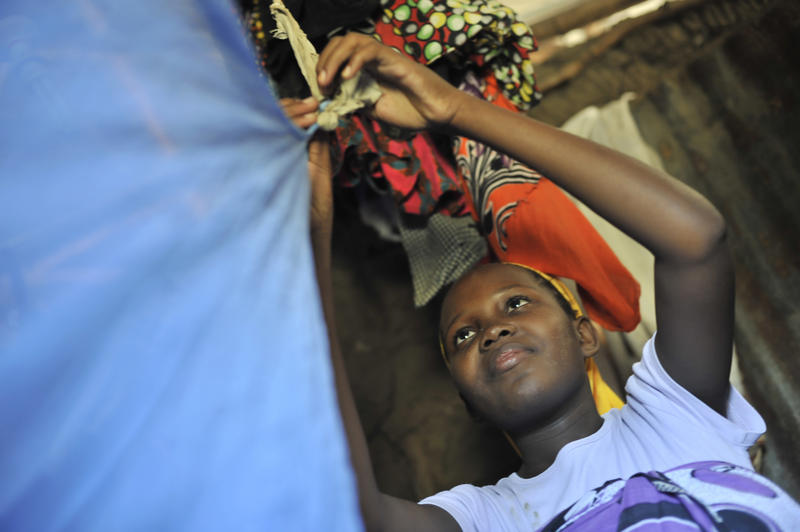In Ghana, where long-lasting insecticide-treated bed nets are distributed for free by the national malaria control program and international aid groups, they are almost impossible to buy in stores. Just 14 percent of middle-class households sleep under them – even though most believe that these nets offer the best protection from malaria-infected mosquitoes.
If comfortable, convenient and attractive treated bed nets were sold in shops, millions of Ghanaians would buy and use them, suggests a new market analysis from the Johns Hopkins Center for Communication Programs’ Private Sector Malaria Prevention (PSMP). PSMP is funded by the U.K. Department for International Development (DFID).
This could significantly reduce the financial burden on the Ghanaian government, allowing scarce malaria control funds to be more efficiently allocated to rural areas and less-affluent households with higher risk of malaria infection, says CCP’s Matthew Lynch, project director of PSMP.
“We wanted to find out if there would be a retail market for treated bed nets and the answer was a resounding yes, but only for nets that are different from the ones that are distributed for free,” says CCP’s Danielle Piccinini, who contributed to the market analysis. “If the need for different styles of bed net can be met, Ghanaian merchants could do a very good business in them.”
PSMP’s research found that middle-class people in Ghana want nets that are easier to hang (such as from a single point as opposed to the usual several points), that are easier to get into and out of (such as zippered entrances that don’t involve retucking every time you leave the bed) and that are attractive and match their room décor. They also want nets made of polyester, which is perceived to be a softer and cooler material than the polyethylene from which many donor-funded nets are made, and larger nets to accommodate a queen bed as opposed to a double.
“The nets make your room look ugly,” a woman from a rural area outside Accra told researchers. “We need fancy nets with variety of colors we can choose from and one that’s nice to hang so we can do away with all the poles or nails in the wall.”
The research included focus groups, household surveys, discrete choice experiments, a retail audit and interviews with people along the supply chain.
Among 514 middle-income households surveyed as part of the PSMP market research, only 29 percent said they own an insecticide-treated net compared with 73 percent nationally. More than eight in 10 households in the study said they believed bed nets are an effective way to protect against malaria, even though only 14 percent reported using them. The middle class earns an average per capita income of at least $4 U.S. per day. The PSMP research found that people would be willing to pay an average of $7.90 U.S. for a net that met their preferences.
These families use other forms of protection from malaria such as insecticide spray, coils and other mosquito repellants, as well as air-conditioning. They feel like all of the methods, aside from air-conditioning, are less effective than nets. More than half of those who use mosquito coils said they believe that they are “worse” than bed nets, yet 46 percent still use them.
The researchers say that their analysis suggests there is a robust national market for a comfortable, convenient and attractive treated bed net. A moderate estimate finds that one million bed nets could be sold in the first year alone, increasing to 6.6 million four years later. Stores that currently sell bed nets are few and those that do report low sales, likely because they sell nets that are the same as those distributed for free.
After being shown preliminary research, Piccinini says two companies expressed interest in the Ghanaian bed net market and are expected to enter the market shortly with treated bed nets that meet many of the criteria people in the research suggested they desire.
“To date, the majority of the bed nets in Ghana are donor funded and there is concern that donors may not distribute nets forever,” Piccinini says. “Ghana – and other nations – need to develop a sustainable commercial market for nets so that people there will have an option if donor dollars dry up.”
Meanwhile, those surveyed as part of the research said they really appreciated the opportunity to have their voices heard. One woman told researchers, “No one has ever asked what we wanted before,” Piccinini says.
“If we were able to tailor more of our global heath approaches to what the end users want,” she adds, “our impact would be greatly amplified and we could create something sustainable.”





